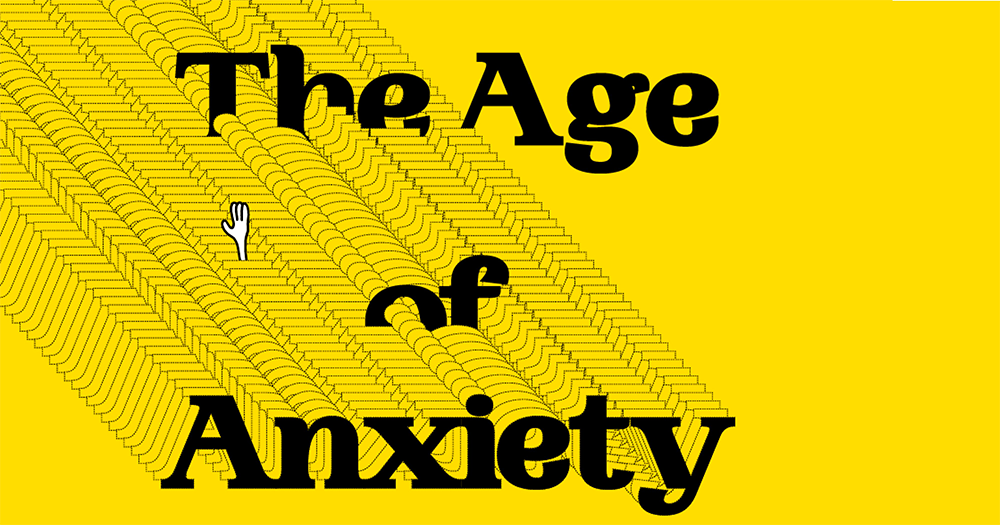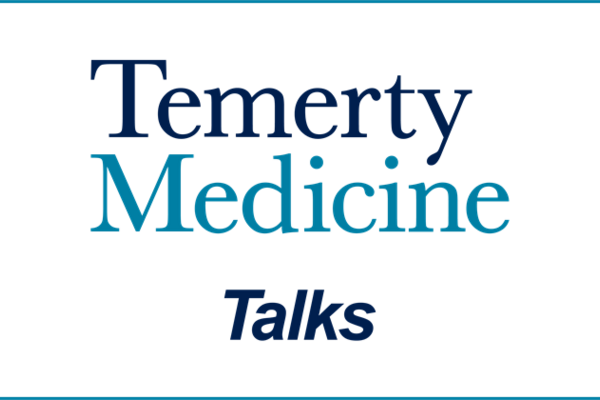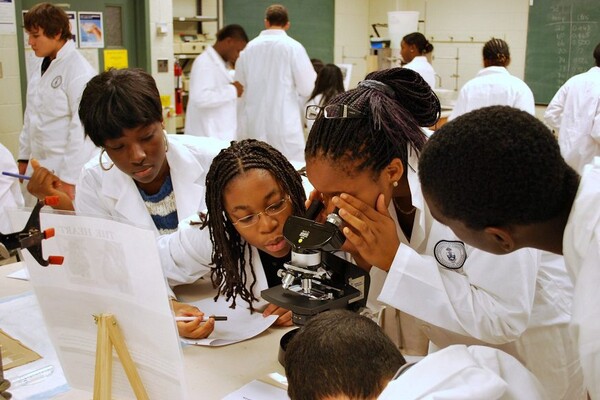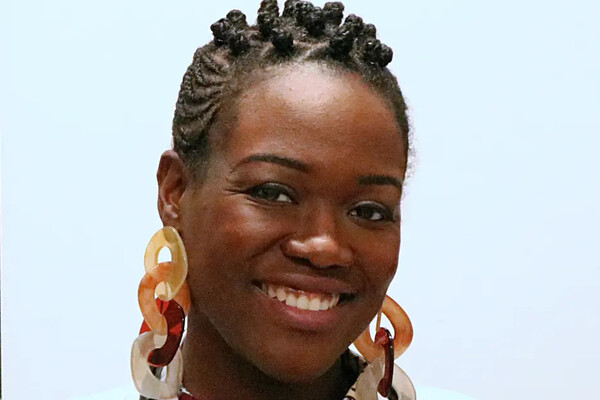Main Second Level Navigation
Breadcrumbs
- Home
- News & Events
- Recent News
- UofTMed Magazine Sneak Peek: The Age of Anxiety
UofTMed Magazine Sneak Peek: The Age of Anxiety

Cotton diapers. Bamboo diapers. Hemp diapers. It was all overwhelming.
It was March 2021, weeks before the due date of Professor Sarah Levitt’s first child.
Levitt (MD ’15), an assistant professor in the Temerty Faculty of Medicine’s Department of Psychiatry, was deep in the “rabbit hole” of seemingly endless diaper options.
For Levitt — who is concerned about the climate crisis threatening planetary health — deciding which diaper option would be the least environmentally harmful was confusing.
And who hasn’t been anxious about making a decision?
After 15 months of pandemic life, each and every one of us has had to grapple with their life choices. Welcome to the Age of Anxiety.
Like: How to avoid getting COVID-19? How to minimize environmental degradation? How to navigate our increasingly complex world?
For Levitt, when approaching a situation fraught with anxiety, such as determining the best diaper solution, the challenge requires a flexible attitude.
What if . . . anxiety wasn’t all bad? Could anxiety, in fact, be valuable as a driver of change, safety and health, and even evolution?
Levitt educates psychiatrists on how to address climate anxiety, and tells her own patients that environmental threats have made her feel fearful, lonely and guilty.
“Our society is wary of what we consider to be negative emotions,” says Levitt, who is also a psychiatrist at University Health Network and a member of the Canadian Climate Psychiatry Alliance.
“We’re taught: ‘You should be happy,’ and ‘Everything should be good all the time.’ That can be a really harmful narrative. It’s important to teach people that it’s OK to be anxious sometimes. Anxiety can teach you something about an experience that you’re in, as long as it’s not functionally impairing you and making your life smaller.”
It’s a timely message during the pandemic.
While previous epidemics and natural crises provide some insights into how the pandemic can negatively influence mental health, this pandemic has been an outlier in a key way, explains Professor Sanjeev Sockalingam (PGME ’08), the Vice-President of Education and a clinician-scientist at the Centre for Addiction and Mental Health, and a professor in Temerty Medicine’s Department of Psychiatry.
Sockalingam has co-authored a study that compares research on the mental-health impacts of past medical crises.
“We haven’t had single peaks as with most pandemics. It’s been more than a year of peaks and valleys,” he explains. Each peak brings renewed mental-health concerns, and research indicates that negative impacts could linger for years, he says.
Medicine needs anxiety
Good medical care requires some anxiety.
“The more I’ve reflected on it, the more positive I feel about anxiety,” says Professor Jodi Lofchy (MD ’84, PGME ’90), the Interim Chief and Medical Director of Psychiatry at St. Joseph’s Health Centre, and an associate professor in the Faculty’s Department of Psychiatry.
“We use anxiety to inform our practice and make sure that we’re safe, our teams are safe, and our patients are safe,” explains Lofchy, who trains doctors in how to respond to agitated patients.
Strategies range from identifying potential risks — dangling earrings when grasped by a distressed patient can become weapons — to heeding intuitive responses.
“Follow your gut,” she advises.
Proper medical responses require vigilance, something Professor Zainab Abdurrahman (MD ’07), a clinical immunologist and allergist in Mississauga and at McMaster Children’s Hospital in Hamilton, calls the positive result of anxiety.
She regularly explains how to keep young children safe from potentially life-threatening allergic reactions, while informing parents and caregivers that the chances of death are often much lower than assumed.
“Education is key,” says Abdurrahman, who is also an adjunct assistant clinical professor in McMaster University’s Department of Pediatrics.
“I’m always trying to figure out with each person what their big fear is. It’s different for everybody.”
Relational causes of anxiety
One of the most important, but often least discussed, contributors to anxiety is interpersonal relationships.
While maintaining proper diet, sleep, exercise and taking appropriate medications, when necessary, can help alleviate some symptoms, it’s “crucial” to understand how relationships affect anxiety, says Professor Robert Maunder (MD ’84, PGME ’89), a psychiatrist at Mount Sinai Hospital and a professor in the Faculty’s Department of Psychiatry.
Relationships include some discomfort, he says, but they also provide security.
“To be engaged with other people who matter to you involves apprehension,” he explains. “It involves anticipating bad outcomes, trying to avoid them and working to improve things. A relationship without anxiety is kind of a non-relationship.”
No individual can completely control a relationship.
“It is under your influence but not under your control,” says Maunder. “Doctors can’t necessarily fix someone’s grief or loneliness. There’s lots of things in medicine we can’t solve. But, we can still certainly tend to them.”
Non-medical supports
That could include advocating for better non-medical supports.
“The pandemic has affected some people disproportionately,” says Saadia Sediqzadah (PGME ’2020), a psychiatrist and clinician investigator at St. Michael’s Hospital.
Many of Sediqzadah’s patients experience homelessness because mental illness makes it hard for them to find and retain employment. Yet many people who don’t have these illnesses have suddenly lost jobs during the pandemic and needed government assistance. Her patients have long relied on fewer government supports during similar situations, she says.
“They often feel left behind,” Sediqzadah reflects. “It makes them feel less alone knowing that others are going through difficulties that they have been experiencing for years.”
Building community with like-minded people
In-person social networks are crucial for good health.
Encouragement from others is key for helping people complete meaningful tasks and fulfil roles successfully, says Bonnie Kirsh (OT ’77, MEd ’83, PhD ’99), a professor in the Faculty’s Department of Occupational Science & Occupational Therapy.
“Discomfort or lack of fit between people and their worlds in real and ambiguous ways creates anxiety,” she says.
“That can lead people to think carefully about how to avoid that lack of fit or that danger ahead and create new ways of addressing the challenges so that danger or discomfort can be avoided. It can lead people to very innovative thinking and experimentation and problem-solving,” says Professor Kirsh.
Increased anxiety may also change how physicians support each other.
Early in 2021, Professor Julie Maggi (PGME ’03, MSc ’04) was named the Director of Faculty Wellness at the Faculty.
Maggi says she’s excited to help “create a really strong leadership team that can help guide and shepherd the department.”
She knows how beneficial that is.
When the COVID-19 pandemic began, her colleagues covered her emergency room shifts so she could help her elementary school-aged son adjust to virtual school and move her clinics online. It was a “buffer,” she says, noting that the support made her want to help others later.
Doctors can still create a strong community for each other, even if they’ll “never replicate the doctors’ lounge,” Maggi says.
Doing your best
Levitt understands the benefits of making decisions within a community, even when it’s uncomfortable.
She says, for example, the process of choosing to become a parent was “a really, really hard decision,” even though she’s thrilled about the baby.
“I still sometimes feel quite anxious about what might happen to the world that this child is coming into. You want what’s best for your kid; you need the environment to be better,” she says.
So for Levitt, participating in advocacy efforts, such as speaking to her city councillor about environmental policy, has helped her manage her anxiety.
“I’m lucky enough to have agency over my own behaviour and choices,” she says.

The Age of Anxiety: A Temerty Medicine Talk
Want to take a deeper dive into healthy worry in the Age of Anxiety? Register for the next offering in our popular Temerty Medicine Talks series, scheduled for Friday, June 18 from noon to 12:45 p.m.
News


